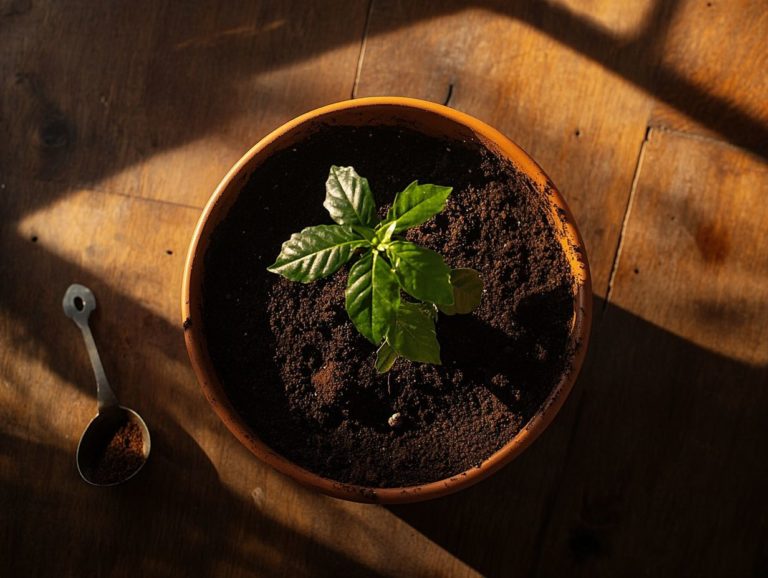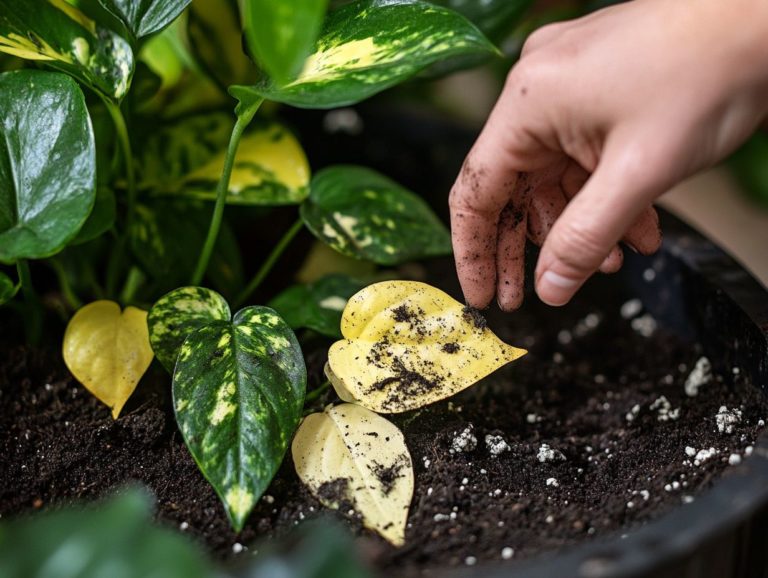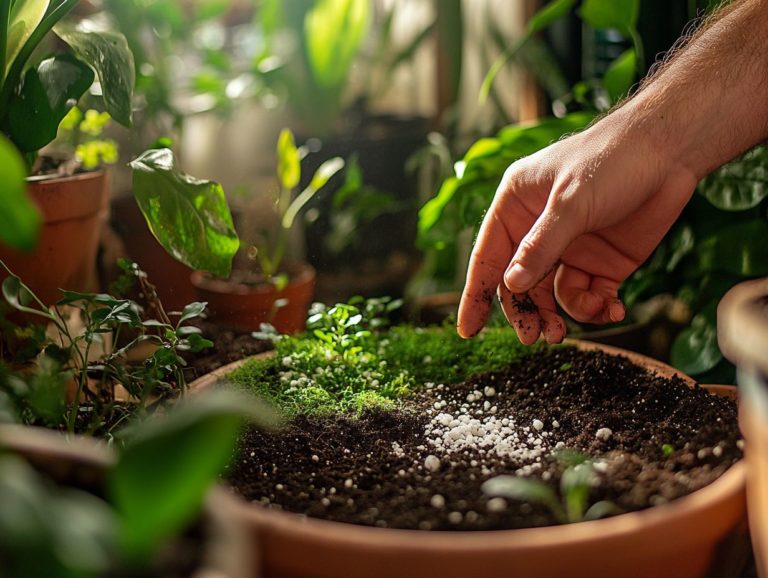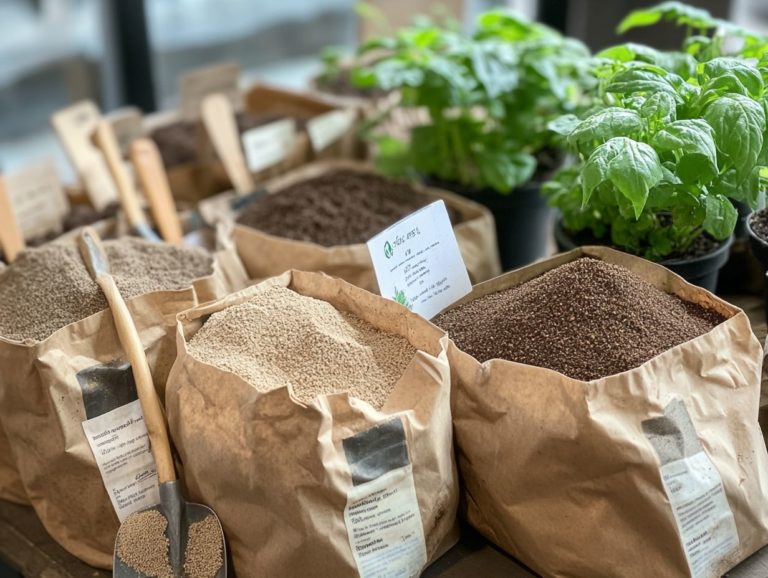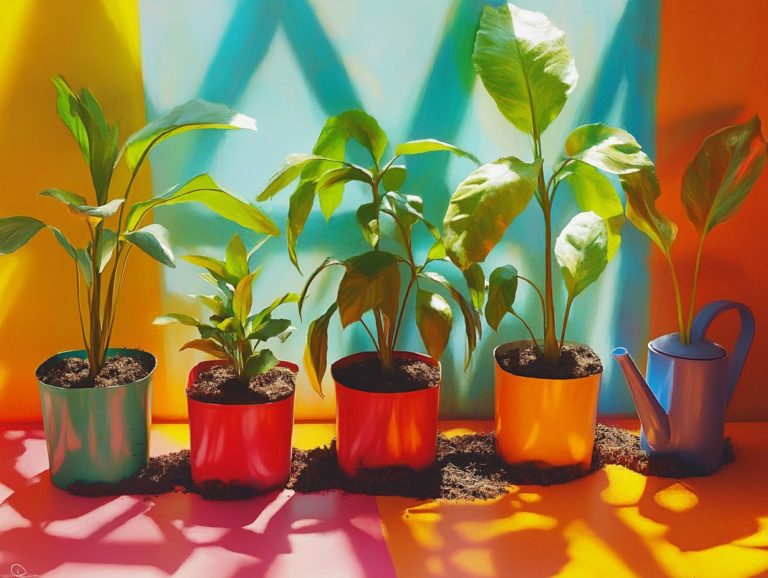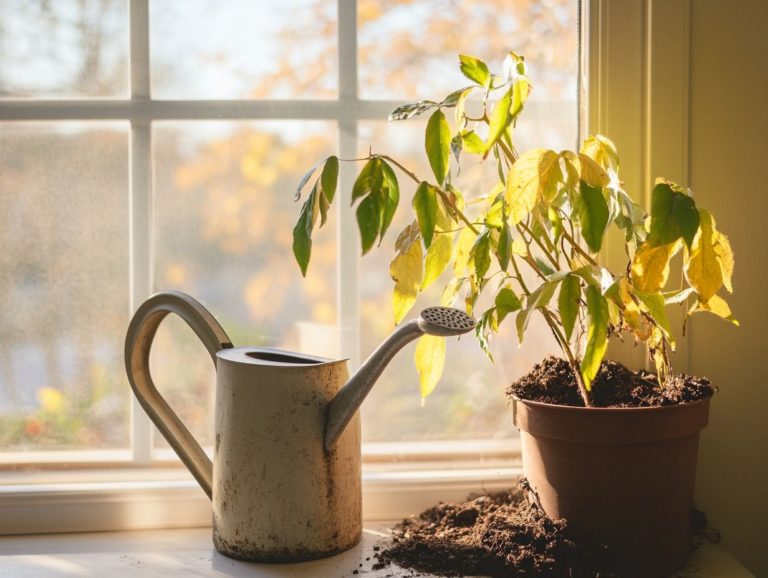How to Use Worm Castings in Indoor Soil
Worm castings, or earthworm castings, are nutrient-rich. Gardeners often call them black gold because of their benefits as organic fertilizers.
These natural fertilizers enhance soil quality and promote vibrant plant growth, making them essential for indoor gardening enthusiasts. Let s dive into the amazing world of worm castings, exploring their composition and the many benefits they provide, such as improving soil structure and boosting microbial life.
You ll find step-by-step instructions on how to use them effectively, along with gardening tips for maximizing their impact and guidance on where to source them. Prepare to transform your indoor plants with this eco-friendly solution!
Contents
- Key Takeaways:
- What are Worm Castings?
- Benefits of Using Worm Castings in Indoor Soil
- How to Use Worm Castings in Indoor Soil
- Tips for Maximizing the Benefits of Worm Castings
- Where to Find Worm Castings
- Curious about worm castings? Here are some frequently asked questions!
- What are worm castings and why are they beneficial for indoor soil?
- How do I use worm castings in my indoor soil?
- Can I use worm castings for all types of indoor plants?
- How often should I use worm castings in my indoor soil for optimal plant growth?
- Are worm castings safe for my indoor plants and beneficial for their health?
- Can I make my own worm castings for indoor soil using sustainable gardening practices?
Key Takeaways:
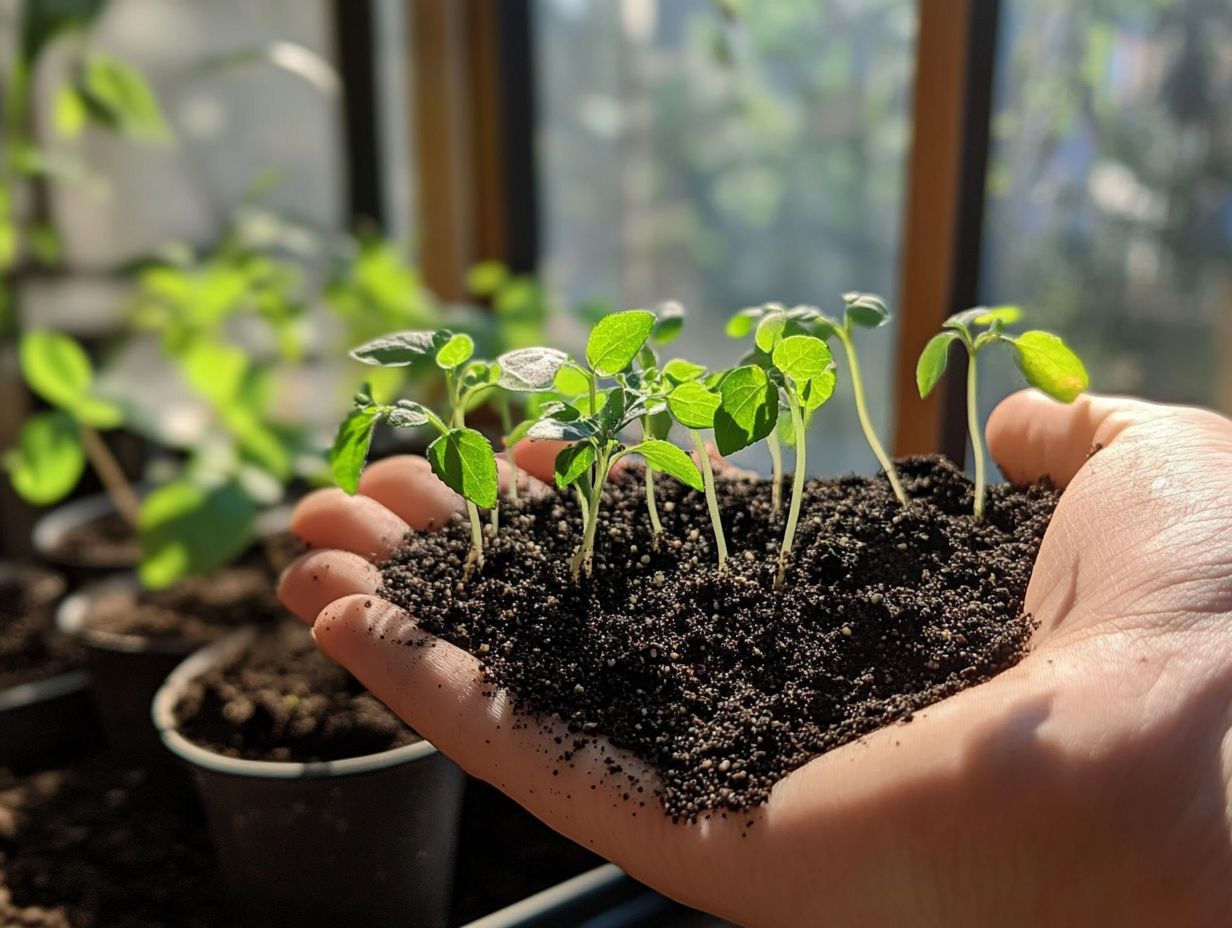
- Worm castings are organic fertilizers made from the waste of earthworms, rich in nutrients and beneficial microorganisms.
- Using worm castings in indoor soil can improve soil quality, boost plant growth, and reduce the need for chemical fertilizers, making them an essential part of any sustainable gardening strategy.
- To use worm castings, mix them into the soil or create a worm casting tea to water your plants. Avoid using them on sensitive or seedling plants.
What are Worm Castings?
Worm castings, commonly known as worm castings (instead of vermicompost), are the nutrient-dense excrement produced by earthworms. They play a vital role in organic gardening and sustainable agriculture. These castings are packed with beneficial microbes, essential plant nutrients, and organic matter, all of which significantly enhance soil health and structure, promoting a thriving ecosystem for your plants.
Whether you re gardening indoors or outdoors, worm castings are an invaluable soil amendment. They improve soil aeration, boost water retention, and enhance overall soil composition, creating an ideal environment for vigorous plant growth. They also reduce pest resistance and increase resilience against environmental challenges.
Definition and Composition
Worm castings are rich in organic matter and nutrients, created as earthworms digest organic waste, turning kitchen scraps and garden debris into a remarkable soil amendment.
These castings go beyond ordinary compost; they contain essential nutrients like nitrogen, phosphorus, and potassium elements critical for robust plant growth. Additionally, worm castings are teeming with beneficial microbes and bacteria that significantly improve soil health.
These microorganisms work tirelessly to break down organic material, enhance soil structure, and boost microbial activity in your growing medium. This cultivation creates a vibrant ecosystem, allowing your plants to absorb nutrients more effectively, strengthening their root systems and leading to improved growth and resilience against diseases.
Benefits of Using Worm Castings in Indoor Soil
Utilizing worm castings in your indoor soil provides a wealth of benefits that can greatly enhance plant growth and overall soil quality. This makes them a favorite among organic gardeners and indoor plant aficionados.
Improving Soil Quality and Plant Growth
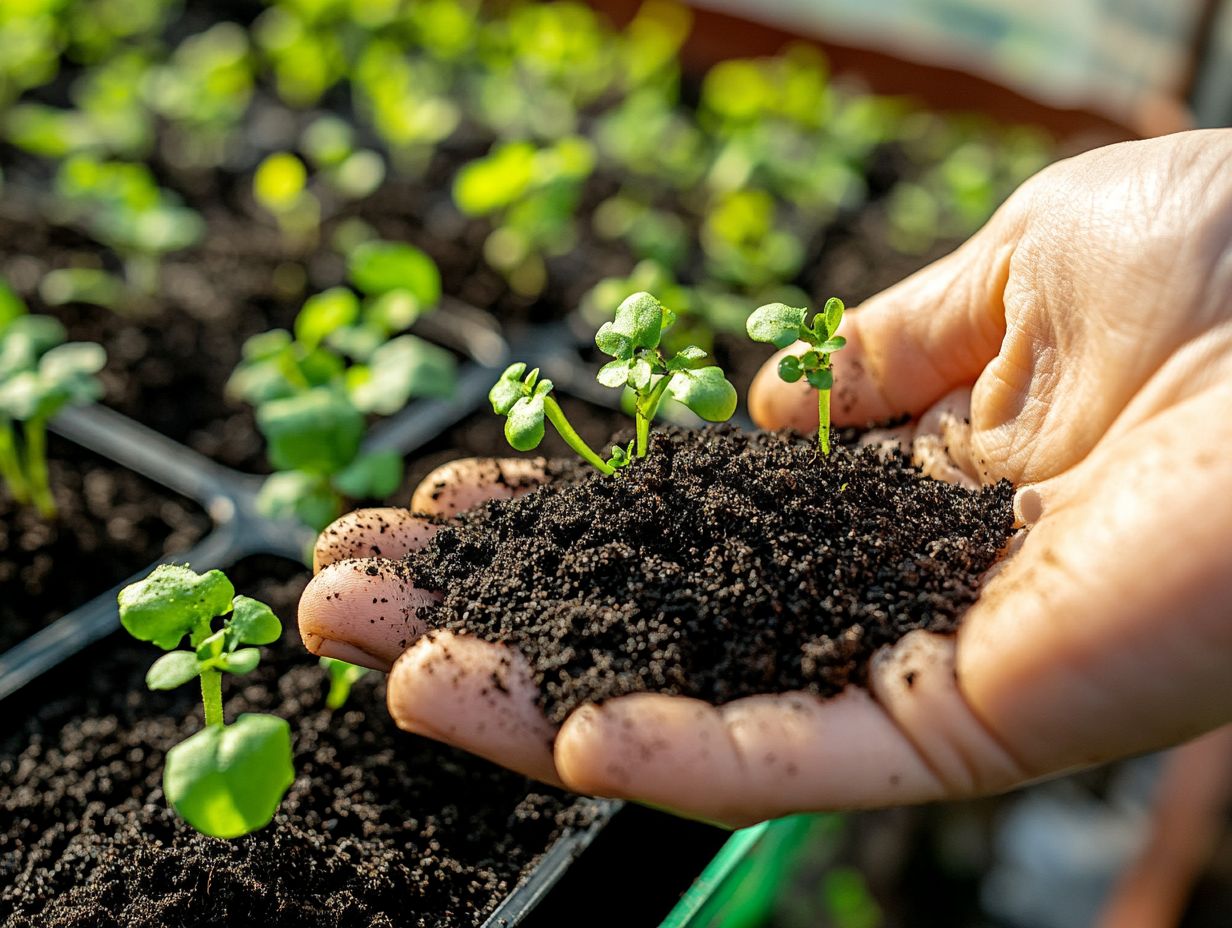
Worm castings enhance soil quality by infusing it with essential nutrients and beneficial microbes, creating the perfect environment for vibrant plant growth along with improved soil structure.
This natural fertilizer, rich in vital microorganisms, promotes a balanced soil environment that boosts root mass, essential for plants in their quest for nourishment. Techniques like worm composting or integrating worm castings into raised beds yield remarkable results, improving drainage, aeration, and overall soil composition.
Vegetables like tomatoes and peppers, along with herbs such as basil and thyme, thrive in nutrient-rich conditions. They experience accelerated growth and show enhanced resistance to pests, supporting healthy plants and sustainable gardening practices.
How to Use Worm Castings in Indoor Soil
Incorporating worm castings into your indoor soil is an easy task that can significantly elevate the quality of your potting mix. This simple addition enriches the soil and fosters robust plant growth across various gardening techniques.
It also promotes a nutrient-rich soil environment.
Step-by-Step Instructions
To make the most of worm castings in your indoor soil, follow this step-by-step guide designed to enhance your container plants growth while ensuring the best care for your soil.
Begin with a blend of worm castings and potting soil. Mix one part castings with three parts soil to create a nutrient-rich foundation.
As you fill your containers, be sure to leave ample space for plant roots to breathe and thrive. Avoid compacting the soil, as this can impede aeration and water retention.
For ongoing nourishment, consider applying worm castings as a top dressing. Simply sprinkle a thin layer on the soil surface every few weeks. Monitor your watering habits too; excessive moisture can disrupt the vital microbial activity the tiny organisms that help plants grow and lead to root rot.
Remember, healthy soil thrives on balance. Be cautious with chemical fertilizers, as they can harm beneficial microbes.
Tips for Maximizing the Benefits of Worm Castings
Make the most of worm castings to give your plants a boost! Adopt specific gardening strategies that enhance microbial activity and elevate your overall plant care.
This approach ensures that your indoor plants thrive in a nutrient-rich environment, setting the stage for strong growth and disease resistance.
Dos and Don’ts for Using Worm Castings
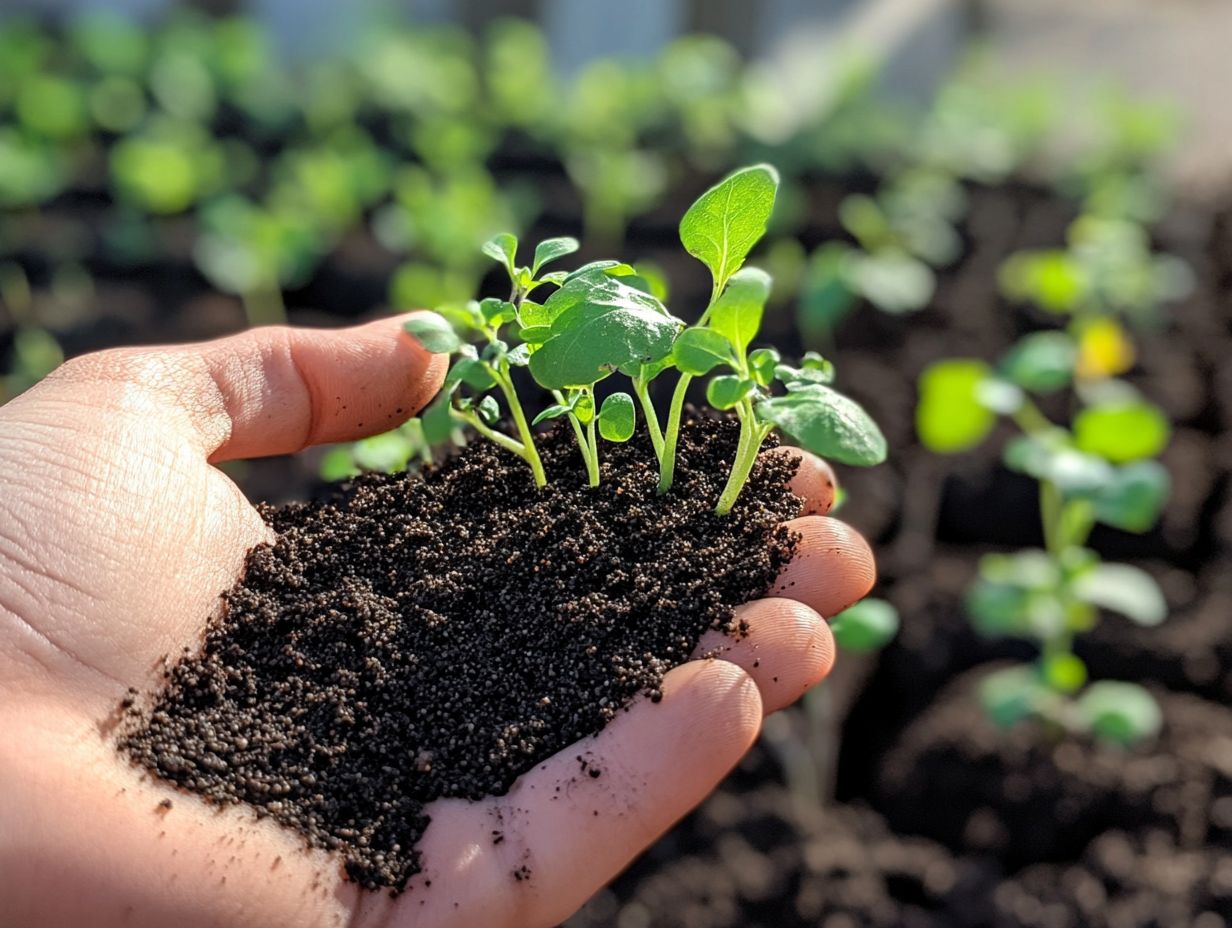
When using worm castings, following specific dos and don ts can enhance their effectiveness as a soil amendment for your plants’ health and vitality.
To unlock the full potential, keep an eye on application rates and the nitrogen content. Overdoing it can lead to compaction or nutrient imbalance, hindering plant growth and soil health. A helpful guideline is to mix one part worm castings with three parts potting soil to achieve that optimal balance. Pair these nutrient-rich organic fertilizers with other organic materials like compost or peat moss to improve aeration and drainage, enhancing overall soil composition.
Be mindful of the moisture content of worm castings. Applying them without considering this can leave your soil too wet and prone to root rot. By regularly checking soil moisture and adjusting as necessary, you can keep your indoor garden vibrant and healthy.
Where to Find Worm Castings
Finding high-quality worm castings for your gardening endeavors is easy. You can choose to purchase them from reputable suppliers or embark on the rewarding journey of creating your own through effective composting methods, including worm farming techniques.
Each approach offers unique benefits, allowing you to enhance your gardening experience with nutrient-rich soil amendments.
Start today and watch your indoor garden flourish!
Options for Purchasing or Making Your Own
You have several great options for obtaining worm castings. You can visit local garden centers, browse online suppliers, or explore the rewarding world of homemade composting through worm farming techniques.
Many local garden stores provide organic gardening supplies. These often feature high-quality worm castings and other natural fertilizers. This allows you to support your community while acquiring eco-friendly products that enhance your gardening efforts and soil health.
If convenience is more your style, numerous online marketplaces, such as Amazon and specialized gardening websites, present a wealth of choices for purchasing worm castings. You can find reviews to help you make informed decisions about your gardening supplies and soil amendments.
Setting up a basic worm composting system is quite straightforward and involves just a few steps:
- Selecting a suitable bin.
- Adding bedding materials like shredded newspaper and kitchen scraps.
- Introducing red wigglers, the ideal composting worms.
This approach yields nutrient-rich soil boosters. It is a cost-effective and sustainable gardening practice that enhances your overall garden care.
Embrace home composting! You’ll cut down on waste, boost your soil health, and save money on fertilizers all while having fun!
Curious about worm castings? Here are some frequently asked questions!
What are worm castings and why are they beneficial for indoor soil?
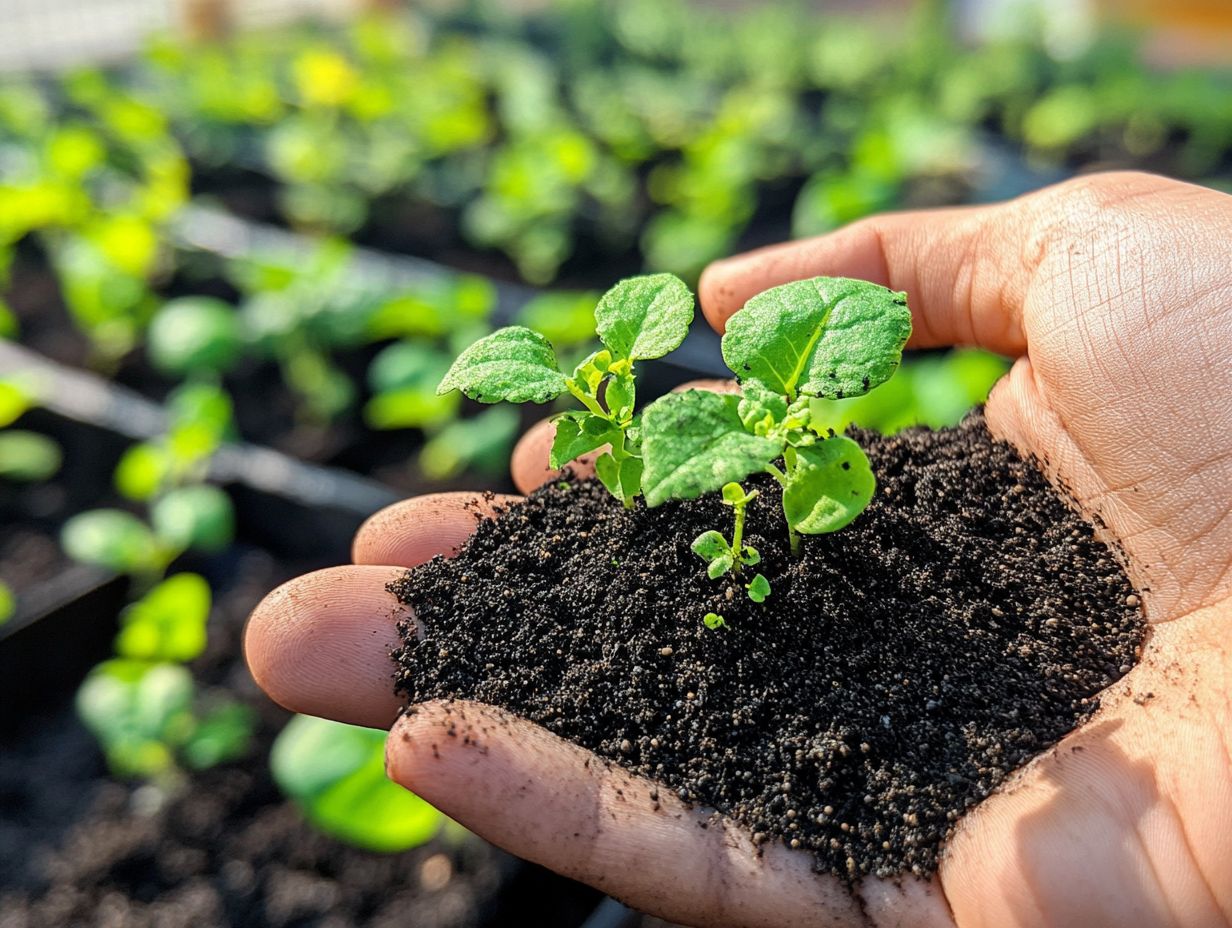
Worm castings are the waste products produced by earthworms. They consist of organic matter that contains essential nutrients and beneficial microorganisms, improving the overall health of indoor soil. This makes them an excellent soil amendment for all types of indoor plants.
How do I use worm castings in my indoor soil?
Worm castings can be used as a soil amendment by mixing them with potting soil or sprinkling them on top of the soil as a top dressing. Lightly incorporate it into the soil. They can also be used as a liquid fertilizer by steeping them in water. Water your plants with the solution to provide essential plant nutrients.
Can I use worm castings for all types of indoor plants?
Yes, worm castings can be used for all types of indoor plants, including flowering and non-flowering plants. They help promote healthy growth and strong root development, making them a versatile addition to your home gardening practices.
How often should I use worm castings in my indoor soil for optimal plant growth?
You can use worm castings as often as desired, but once every 1-2 months is recommended. They are a slow-release fertilizer that improves soil structure and water retention, continuing to provide nutrients to your plants over time.
Are worm castings safe for my indoor plants and beneficial for their health?
Yes, worm castings are completely safe for indoor plants. They are organic and do not contain harmful chemicals or additives.
Can I make my own worm castings for indoor soil using sustainable gardening practices?
Yes, you can make your own worm castings using a worm composting bin. This is a simple and eco-friendly way to produce nutrient-rich castings for your indoor plants.

